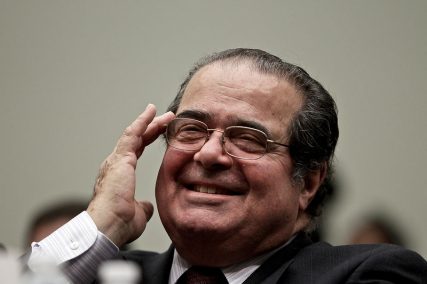Plant a carrot; get a carrot, not a brussels sprout. That’s why I love vegetables. You know what you’re about.
Those lyrics from a Broadway show, The Fantasticks, come to mind when I mull unintended consequences.
And boy howdy are consequences on my mind right now as we begin months of waiting for the U.S. Supreme Court ruling on Sebelius v. Hobby Lobby and Conestoga Wood Specialties – a.k.a. the Hobby Lobby case where Christian private business-owning family corporations challenge the Obamacare contraception mandate case.
It’s got politics. It’s got science. It’s got religious freedom, and women’s rights and the moral limits of health insurance. Read the transcript at SCOTUS blog. It’s all in one giant ball of wax mixed in with whether a corporation is a person (i.e. Citizens United) and a person’s personal religious belief trumps all.
Today’s twitterstorm between dueling hashtags #notmybossbusiness and #religiousfreedomforall was riddled with misinformation, hyperbole, and troll posts. Fortunately, it turned out to be more of a twittersquall that blew over fairly quickly. It slid from Twitter’s top 10 by noon Eastern to be replaced by the vulgarly hilarious #RuinAChildrensBook.
Now, we wait. We wait not only for the ruling but also for the surprising ways that ruling could play out.
Melinda Henneberger raises excellent questions as people try to read the SCOTUS/HobbyLobby arguments today like studying Chinese wall posters. She asks:
- Whether there’s a compelling government interest in forcing dissenters to pay for coverage they don’t believe in and whether forcing them to pay a fine if they choose not to comply constitutes a substantial burden?
- Are ‘Plan B’ and ‘Ella’ really abortifacient, and if you believe they are, is that enough?
- If RFRA applies to for-profits, then what if not all of those who run it are in religious agreement?
- And finally, wouldn’t this open the door to discrimination against gay people on religious grounds?”
Ah, yes, open doors…

Justice Antonin Scalia’s dissent when the U.S. Supreme Court overturned DOMA inadvertently opened the door to states overturning gay marriage bans.
Remember, it’s Justice Antonin Scalia’s dissent when SCOTUS overturned DOMA last year that judge after judge cites as they overturn one state gay marriage ban after another. Scalia wrote:
“By formally declaring anyone opposed to same-sex marriage an enemy of human decency, the majority arms well every challenger to a state law restricting marriage to its traditional definition. Henceforth those challengers will lead with this Court’s declaration that there is “no legitimate purpose” served by such a law…”
So far, that’s exactly what’s happened in six states.
No matter how the justices find in the Hobby Lobby case, be sure to read the dissent.





